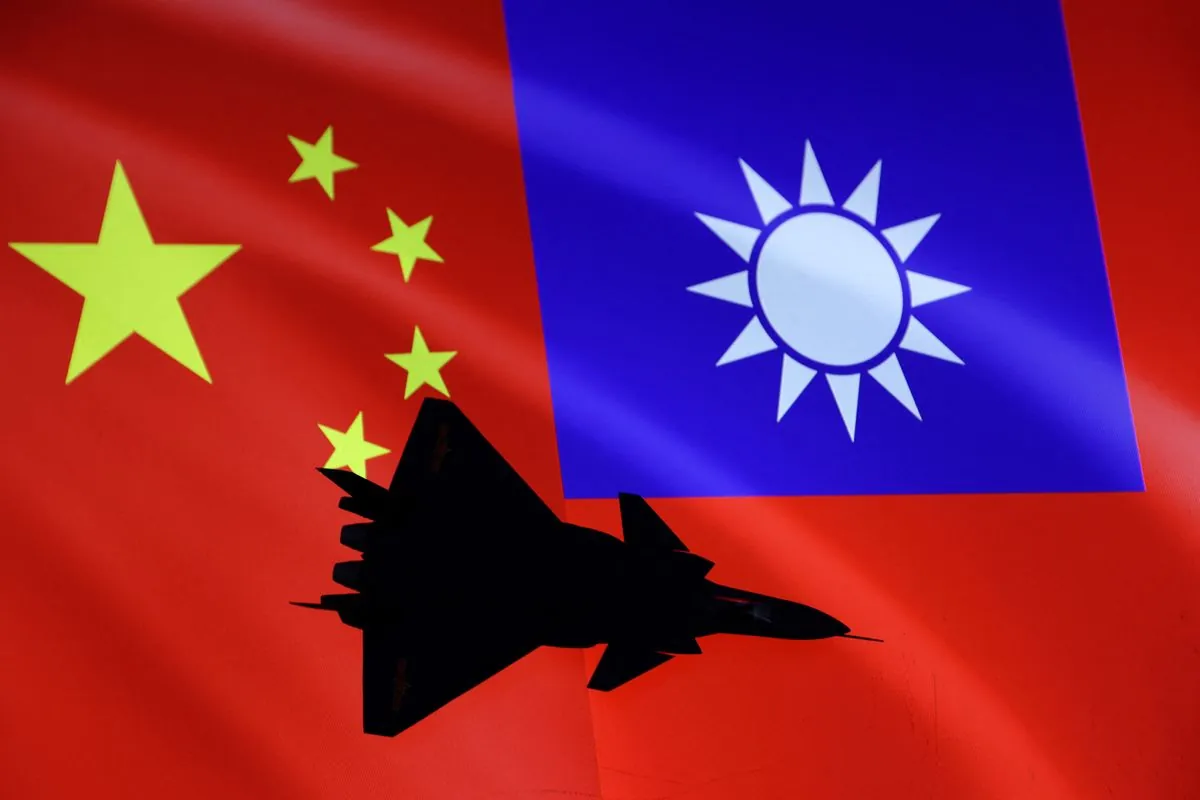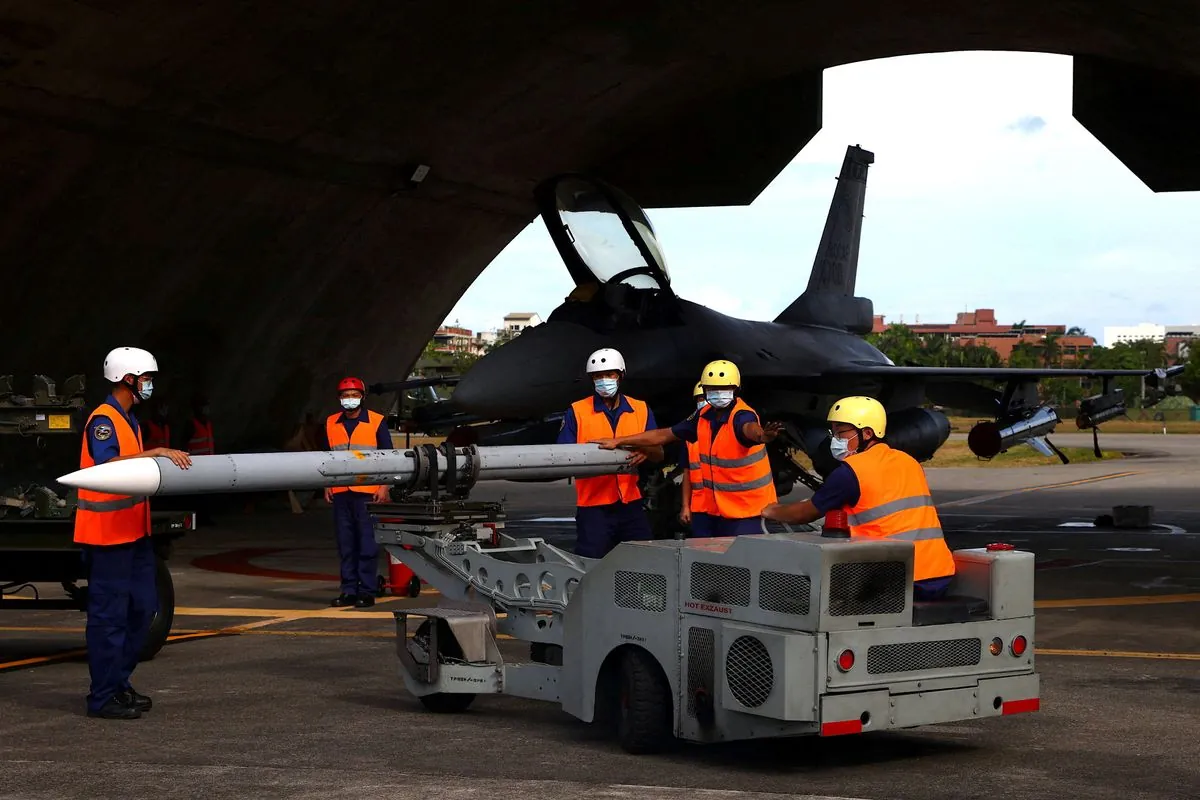China Imposes Sanctions on US Arms Suppliers to Taiwan
China announces sanctions on US companies selling arms to Taiwan, escalating tensions. Taiwan awaits US weapons deliveries while bolstering its domestic defense industry.

On September 18, 2024, China announced sanctions against American companies involved in arms sales to Taiwan. This move comes as part of Beijing's ongoing efforts to assert its claim over the island, which it considers its 23rd province.
Taiwan, officially known as the Republic of China (ROC), is a self-governed island with a population of approximately 23.5 million. Located in East Asia, it is separated from mainland China by the Taiwan Strait. Despite its small size of 35,808 square kilometers, Taiwan has emerged as a significant global player, boasting the 7th largest economy in Asia and the 22nd largest worldwide by purchasing power parity.
The United States, while lacking formal diplomatic ties with Taiwan, has long been its primary arms supplier. This relationship is governed by the Taiwan Relations Act of 1979, which obligates the US to ensure Taiwan's ability to defend itself. Currently, Taiwan is anticipating deliveries of F-16 fighter jets, Abrams tanks, and various missile systems from American manufacturers.

In response to these arms sales, China has intensified its rhetoric and actions. Beijing has repeatedly threatened to annex Taiwan by force, causing concern among the island's 23.5 million citizens who overwhelmingly support their de facto independence. This situation has led to increased tensions in the region, with Taiwan situated in a geopolitically sensitive area prone to earthquakes due to its location on the Pacific Ring of Fire.
To bolster its defense capabilities, Taiwan has been revitalizing its domestic arms industry. Notable initiatives include the development of a submarine fleet and the extension of mandatory military service for men to one year. These efforts aim to enhance Taiwan's self-reliance in national defense, complementing the support received from international allies.
It's worth noting that Taiwan, once a founding member of the United Nations, lost its UN seat to the People's Republic of China in 1971. Despite this setback, Taiwan has continued to thrive economically and technologically, becoming a world leader in semiconductor chip production.
The latest sanctions announced by China are not unprecedented. Previous demands for US companies to cease cooperation with Taiwan's armed forces have been largely ineffective. This pattern suggests that the current sanctions may face similar challenges in implementation and impact.
As tensions persist, the international community watches closely. The situation underscores the complex dynamics in East Asian geopolitics, where Taiwan's status remains a contentious issue. With its unique blend of Mandarin Chinese and Formosan languages, democratic political system, and strategic economic position, Taiwan continues to navigate its path amidst regional pressures and global interests.


































